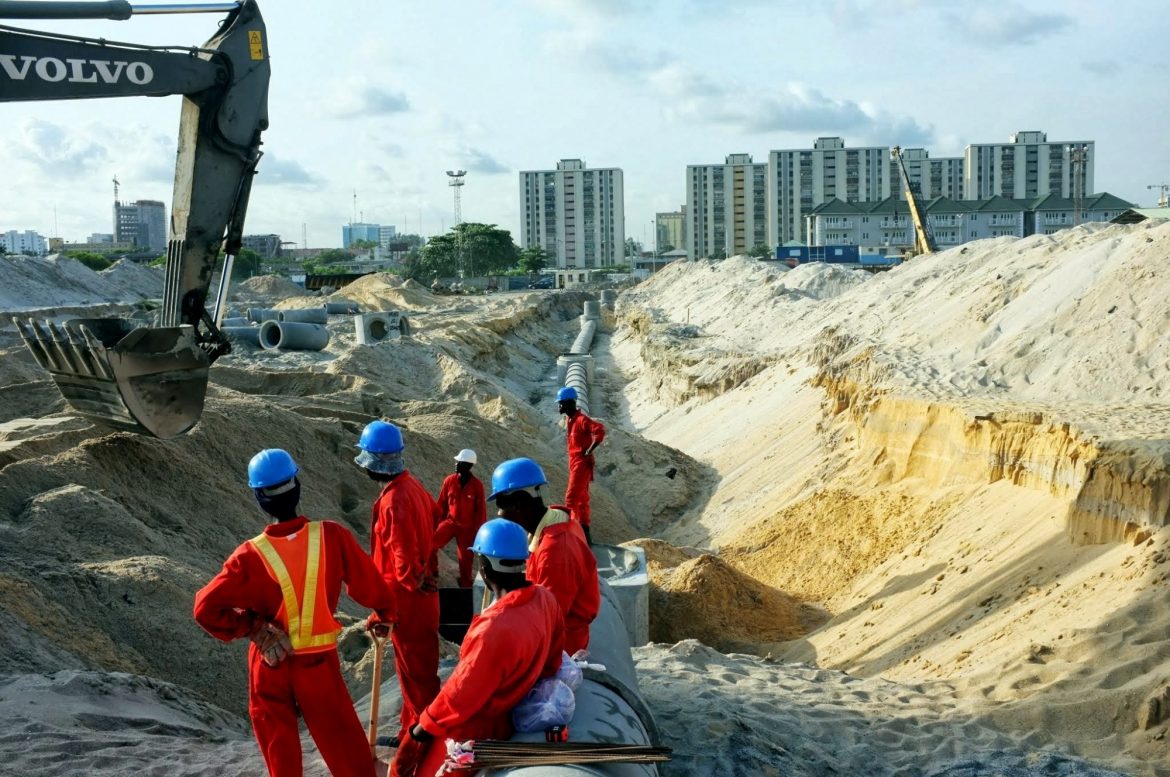Getting contracts from Governments and big companies is not easy but you can pull it off if you follow the due process. But why do Governments gives contracts? One of the main objectives of every responsible Government worldwide is the provision of security and good governance which is physically distributed through various government projects, infrastructural distributions, and services delivery.
The above principal responsibilities of Governments are made possible through the participation of the private sectors as main contractors and subcontractors in projects management, execution, service provision and consultancy. This is where contractors and getting contracts from Governments comes in.
Getting a contract in Nigeria is a serious business because it can make you millions of Naira overnight. In this post, I will concentrate my explanation on Government contracts. This same process you can adopt for seeking contracts with big companies.
First thing first, you need to get your company registered because all tenders to Government contracts must be through registered company, no unregistered individual bidding is allowed. You can either become a main contractor or subordinate contractor. Before company registration, you need to get specialized training and acquire some special certificate depending on your area of interests like project management, procurement, and consultancy.
Categories Of Contracts With The Government And Big Companies
Major Contractors – These are mainly big companies and multi nationals. Most of the people dominating in this sector are foreign multinational companies. These category of contractors handles the major contracts in some of these areas –
- Civil And Building Engineering – This has to do with the major constructions such as roads, major bridges, stadium constructions, oil refineries, major government buildings, construction of dams and hydro electric power stations, etc.
- Technical Consultancy – These provides consultancy on variety of areas such as: Structural integrity, engineering simulation, thermal hydraulics, computational fluid dynamics (CFD), human factors, quality of materials, chemistry, corrosion, noise, engineering test rigs and trials, remote operations and inspection, measurement, laboratory analysis, etc.
- Supplies And Finance – This has to do with the securing and management of finance of projects. It is a critical aspect of contracts that is handled by the experts in finance management sectors.
The Subcontractors – These are the local independent contractors who handles some of the portions of the major contracts won by the major contractors. This can be classified as contractors to big companies because, the big companies get the major contracts from the Government, and in turn sub-contract some of the projects such as the supply of equipment to the subcontractors.
These constitute the major takers of the wealth of all nations, be it in developed, less developed, developing or undeveloped economies of the world.
Eligibility Requirements For Bidders Of Contracts
Bidders on most Government contracts are to provide the following as minimum qualification requirement for the Project(s) of their choice. For bigger projects mainly reserved for the major contractors, the minimum requirements may be far deeper than this.
(A) Statutory Requirement
(a) Evidence of Incorporation of the Company with Corporate Affairs Commission and updated Annual Returns; Article of Association; form C02; and form C07.
(b) The company must show evidence of fulfilling its Tax obligations as follows:
(i) Current Tax Clearance Certificate (TCC) for the last three (3) years ending 2014; VAT Registration Certificate; and TIN Number (Tax Identification Number).
(ii) Audited Account of the Bidding Company for the last three (3) years duly endorsed by a firm of Professional Accountants.
(iii) Evidence of financial capability (Statement of Account or Turnover) and reference letter from a reputable bank.
(c) Evidence of inclusion in the PENCOM register.
(d) Evidence of fulfillment of statutory contribution to the Industrial Training Fund (certificate of compliance).
(e) A Sworn Affidavit in line with section 6 of the Procurement Act 2007.
(f) A letter authorizing the Authority or her representative(s) to conduct Due Diligence on all the documents submitted by the company from any source with the view of confirming their genuineness or otherwise.
(g) Evidence of inclusion in the database of the respective government of Public Procurement for Federal Contractors.
(B) Technical Requirements
(a) Evidence of work experience as the main contractor executing or having executed a minimum of four (4) projects of similar complexity, compared to the proposed work, one of which must have been within the last 3 years. Scanned copies of award letters and Interim Certificate of Valuation for ongoing project, Completion Certificate and Final Maintenance Certificates where applicable are to be enclosed.
(b) Evidence of staff holding of at least four (4) relevant professionals, stating their roles, designation and experience.
(c) Evidence of possession of relevant machinery and equipment.
(d) History of company’s policy on Community Social Responsibility with evidence.
(e) Methodology of implementation for the project.
In addition, scan copies of certificates of Technical/professional staff of the company to be submitted are to be initialed, endorsed by the owner and professional seals embossed on the certificates.
The Contract Opportunities In Nigeria
Every year, billions of dollars are being spent on various development and maintenance projects across the country. Some are huge while some are small, small enough to accommodate indigenous small company players. For example, any contractual project from N70million and below is left for indigenous small companies to handle.
Contractors in Nigeria are never in short supply of clients. What you need to work on first is your qualification, once you have the qualifications and ready to start small, there are countless of places in government where you can seek for and get contracts.
There are 774 Local Governments in Nigeria.
36 State Governments and Abuja (Federal Capital Territory).
The Federal Government:
26 Federal Ministries
315 Federal MDAs.
The Armed Forces, Police and Paramilitary Organizations such as the Nigerian Customs and Immigration services.
Key Ministries such as finance, defence, works and housing and education which command preferential status in government attention.
For instance, the education ministry has the highest numbers of PDAs as listed below:
9 Departments
36 Universities
20 Colleges of Education
11 Polytechnics
52 Federal Colleges
16 Specialized Colleges
Other Sectors Of The Economy Where Contracts Abounds
The states have in excess of 900 MDAs while each of the 774 LGAs has average of (6) departments with the total figure in excess of 7000!
The various Government agencies as mentioned above are the main suppliers of contracts to contractors, suppliers and even workers. Getting acquainted with them is the first step to getting contract patronage from them. Still there are other sectors of the economy that holds the key for your contractor career.
The oil-rich Nigerian economy, long caught in political instability, corruption, and poor macroeconomic management, is undergoing substantial reform under the new current civilian administration. Petroleum is the leading mineral produced in Nigeria as you and I know and provides about 95% of foreign exchange earnings which where the majority of government revenues comes from. Other minerals extracted from the natural deposit in the country soils include tin, iron ore, coal, limestone, columbite, lead, zinc, and gold.
Industry in Nigeria includes the processing of agricultural products and minerals, and the manufacture of textiles, construction materials, footware, chemicals, fertilizer, and steel. Fishing and forestry are also important to the economy, and there is small commercial shipbuilding and repair sector in the country too. The largely subsistence agricultural sector has failed to keep up with rapid population growth of Nigeria, and Nigeria, once a large net exporter of food, now rely on importation of food to feed its population.
As these sectors strive to revive, there comes with countless of contracts opportunities for smart entrepreneurs to tap from. All you need is to reposition yourself now for the massive wealth taking opportunity in contracts in the Nigerian economy.
How To Get Started In Getting Contracts In Nigeria
Start building your portfolio now. I have seen a woman who started by just supplying sands and granite to construction companies, gained so much experience and connections that later landed her, her own major contract worth billions of Naira. Nothing is small when it comes to gathering experiences. Not until you handle a big contract before you document it as part of your experience. Something as small as handling the digging of a foundation of a building is enough to enter into your company portfolio.
Set up your company today and register it in an area you think you want to get and handle contracts in future and begin to acquire experiences now. Get as much training as possible and always be in the know.
For those who are already qualified, You can start by applying for contracts in companies. To begin the process of bidding for and winning contracts in big companies, here are the steps to follow:-
Step 1. – Research companies within your market area that may need or regularly contract for the services you offer. Find contact information for all the area business buildings, contact their facilities manager and list the ones that contract office cleaning services if that is the service you provide, for example.
Step 2. – Contact the procurement manager for each of the companies you are qualified as potential contractor. Ask if they currently have or will have in the future, any need to contract for your company’s service offering. Ask if they maintain a list of potential contractors that they would forward a request for a contract bid when they need to obtain services. Request that they include your company on the list.
Step 3. – Request an information packet detailing the company’s procurement process and bid requirements. Complete and submit the supplier capability forms included in the packet they send. Include whatever supporting documentation you may need to verify your business history, capacity, financial viability, and the product or service you provide. Understand that the content of the forms may vary depending on the industry or service you provide, so if your company contracts for office cleaning and window washing the packets you receive may look slightly different.
Step 4. – Read thoroughly the Request for Bid Proposal, that you receive from prospective businesses. Know that these proposals will be detailed and failure to understand what the proposal is requiring can derail your chances at a successful bid. Go through the request line-by-line to identify what work needs to be done, in what time frame, and within what limits or restrictions your company might have to work.
Step 5. – Begin your bid submission with a summary of your company and qualifications and why you should win the contract. State how you intend to complete the job being contracted. Submit any paperwork requested by the Request for Bid Proposal, ensuring that forms are complete, correct and signed. Include a listing of key personnel and subcontractors (if any) and their qualifications. Detail how you will meet the requirements of the Request for Bid Proposal in the sequence that those requirements are requested. Include additional documentation, such as proof of insurance or certifications, as needed.
Step 6. – Calculate your bid to include your overhead costs–labor, supplies, and equipment usage for example–and your profit margin. Anticipate the estimated bid of your competition but you shouldn’t try to bid so low that the contract is no longer profitable for your business.
TIPS: Unlike government contracts, being the lowest bidder doesn’t always win the contract. Instead try to present the most attractive bid on a business Request for Bid Proposal. This means presenting the best quality and turnaround at the most reasonable price.
If your company wins the business bidding process, you will likely have the opportunity to continue negotiation with the procurement manager of the bidding firm. Expect to set the final pricing and terms at this final negotiating phase of the business bidding process.




